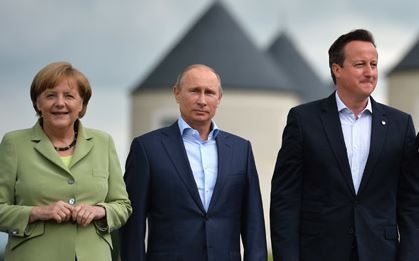All eyes will be on economic data coming out of the Eurozone in the week to come, to see whether business confidence has improved. With Germany only just avoiding a technical recession following one quarter of contraction and another of just 0.1% growth, many wonder whether the currency bloc has ground to a halt.
The world economy is driven by three important regions: The US, EU and China. The Eurozone represents about 20% of the world economy. Therefore, its economic outlook has global implications.
If the Eurozone’s anemic economic performance continues, its likelihood of getting stuck in a two-decade-long Japanese-style stagnation grows. Many economists say the region has already completely lost a decade.
Divergence grows within the Eurozone about how to proceed. Fiscally disciplined Germany wants to reduce debt and hates the idea of ramping up spending, while Italy, France and most of the “peripheral” euro area nations want to more expenditure.
Germany has been criticized by most of the world for depending too heavily on foreign demand to keep itself out of trouble. The US Treasury Secretary and the IMF say it is about time it started digging into its own ample wallet.
The two leaders on the left (Merkel) and right (Cameron) threatened the man in the middle (Putin) with more sanctions.
Germany’s business confidence levels, to be released on November 18th by the Center for European Economic Research (ZEW), will give us a better idea of how things are developing within the country.
The Ukraine crisis and the related anti-Russian economic sanctions have contributed to the Eurozone’s, and especially Germany’s economic woes. With Russia allegedly sending in more troops and military equipment into Ukraine to help separatist rebels, the likelihood of further sanctions grows.
British Prime Minister David Cameron, German Chancellor Angela Merkel and other European leaders said at the G20 leaders’ summit in Brisbane, Australia, that the EU may well ramp up anti-Russian sanctions.
Was the Eurozone a bad idea?
Anti-EU right wing parties across the Eurozone are gaining electorate support on their argument that the creation of the euro was a bad idea.
In the UK, even among less extreme voters, the anti-EU party UKIP is gaining support at an alarming rate.
The UK never joined the Eurozone, preferring to hold onto the pound sterling. Many Brits believe it is no coincidence that their country’s economy is growing faster than any other country in Europe, i.e. there is a growing feeling that much of the EU, especially the creation of the euro, is bad for business.

